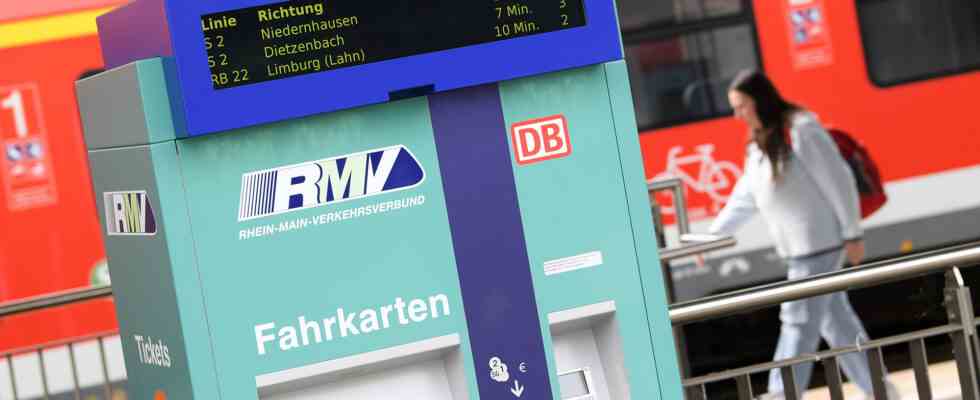Status: 05/05/2022 5:24 p.m
The planned nine-euro ticket for local transport should come on June 1st. The transport ministers of the federal states agreed on this at their conference. But they are also demanding more money from the federal government.
All 16 federal states say yes to the nine-euro ticket for June, July and August. The current chairwoman of the conference of transport ministers, Bremen’s mobility senator Maike Schaefer, was able to report at the final press conference: “We want to do everything we can to ensure that it is available to citizens and passengers on June 1st.”
For the federal states it is also clear: the federal government must assume all costs. Federal Transport Minister Volker Wissing sees no problem with this. 2.5 billion euros plus the income from the nine-euro ticket should be enough: “That’s a well-measured flat-rate compensation for these three months.”
Countries are demanding a further 1.5 billion euros
However, this does not mean that all financial issues have been resolved. Because: A possible success of the nine-euro ticket should be sustainable, says Bremen’s mobility senator Schaefer: “We can’t imagine that people can enjoy public transport for three months and then not be able to maintain the quality or have to increase tariffs because these important means of regionalization are not there.”
Regionalization funds – the sticking point of the Transport Ministers’ Conference. This is the money that the federal states get from the federal government to finance local passenger transport by rail. The federal states are demanding an additional 1.5 billion euros. And they should come this year, explains North Rhine-Westphalia’s Minister of Transport, Ina Brandes.
“We have a clear plan on how we want to expand public transport in the next few years,” she says. “We know exactly what we need and where we need it. We also know what it costs.” The states “only” lack the funding commitment from the federal government to implement this. “And the later we get them, the later we start implementing them and the more difficult it will be to achieve the climate targets by 2030,” Brandes clarifies.
Wissing: Answer transparency questions
Federal Transport Minister Wissing makes the federal states responsible for this. They should convince the federal government to pay the required regionalization funds by clearly disclosing how they use the money in public transport. “The state usually doesn’t have any money left over. If it’s not being spent on it, it’s going to be spent on something else,” he says.
In the end it is a question of setting priorities in the budget. If the federal states want to convince the budget legislator that their concerns are a priority, then the questions of transparency must also be answered. But Wissing also promises: “We will also come to an agreement at this point, I am very confident.”
On the way to climate neutrality?
Finally, the Federal Minister of Transport once again advocates using public transport and seeing the nine-euro ticket as an opportunity: “Of course, certain routes will be burdened at one point or another. But if we do this with consideration for each other and we’re also happy about the fact that many use public transport, then we’ll deal with it well.”
Every public transport user, says Wissing, makes a big contribution: today, to make Germany less dependent on the Russian energy supply and in the future, to make progress on the way to climate neutrality.
Conclusion of the Transport Ministers’ Conference in Bremen
Jens Otto, RB, 5/5/2022 4:00 p.m

